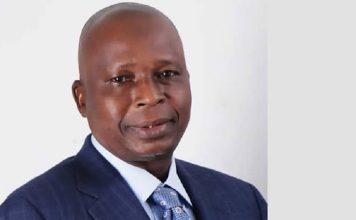The majority of cases in the nation would ultimately be decided in the Court of Appeal, according to law that the Federal Government unveiled on Thursday.
The Supreme Court Justices’ workload is intended to be reduced by this approach.
A significant backlog of appeals is being battled by the Supreme Court.
At the 2023 Legal Year’s opening ceremony, Nigeria’s Chief Justice, Justice Olukayode Ariwoola, bemoaned the overwhelming backlog of 6,884 appeals the Supreme Court Justices were facing.
The Supreme Court, which has 21 Justices at full capacity, hears cases involving civil and criminal appeals from all 36 states in the union as well as the Federal Capital Territory, with the exception of cases involving state legislative and National Assembly election petitions, which are heard by the Court of Appeal.
Speaking to reporters in Abuja, Lateef Fagbemi (SAN), the Minister of Justice and Attorney General of the Federation, stated that draft laws were available to address this and numerous other issues facing the courts.
The AGF also brought attention to other issues, such as shortening the time it takes to decide cases, funding and budgeting for the judiciary, and the process of appointing judges.
According to Fagbemi, the National Summit on Justice, which is being held in conjunction with the National Judicial Council and the Nigerian Bar Association, would revolve around the passage of the legislation.
He stated that the event is scheduled for April 24 and 25, 2024.
He said, “The National Summit on Justice presents a unique opportunity to collectively tackle the pressing issues hindering the efficient, fair, and people-centred delivery of justice in our nation.
“Furthermore, the summit will deliberate on draft legislation pieces proposed to address specific identified challenges within the justice sector, relating to the judicial appointments process, administration, funding and budgeting for the judiciary, the elimination of delays and inefficiencies in justice delivery and to evolve ways to reduce the amount of time for adjudication of cases, eliminate some of the associated technicalities, and reduce the number of cases getting to the Supreme Court.
“In this regard, we intend to look at a situation where many cases will terminate at the Court of Appeal to reduce the burden on our noble Justices of the Supreme Court.”
The AGF stated that a people-centered justice system will be achieved with the support of the proposed bill.
Fagbemi said, “These proposed laws are expected to serve as a catalyst for collective action and provide a guiding framework for relevant governmental institutions at both the national and sub-national levels to establish an effective, efficient, and people-centered justice system.”
During the meeting, Fagbemi announced that the National Policy on Justice for the years 2024 to 2028 would be examined and approved.
He said, “One of the summit’s goals is to review, validate, and adopt the revised National Policy on Justice 2024-2028 to drive prison reforms, access to justice for the average Nigerian, as well as the review of electoral laws and procedures in handling election-related cases, among several other reforms.
“This comprehensive policy document outlines a broad framework and initiatives in 17 thematic areas aimed at reforming the justice sector to enhance its effectiveness and accessibility to all Nigerians, ensuring that justice is not just a privilege for the few, but a right for all.”
Willy Mutunga, a former Chief Justice of Kenya, was scheduled to give the keynote address during the summit, according to the AGF.
“Notably, the summit will feature a keynote address by Dr. Willy Mutunga, EGH, a renowned legal scholar, jurist, and former Chief Justice of Kenya, celebrated for his commitment to democratic principles and human rights, and for the transformative judicial reform that took place in Kenya under his watch.” Fagbemi noted.
